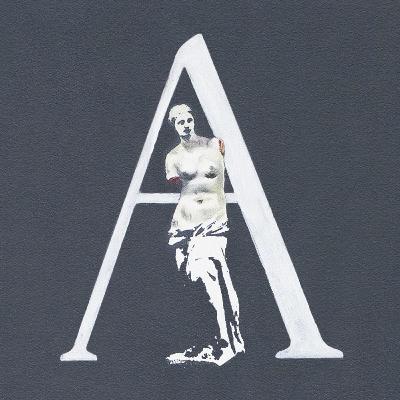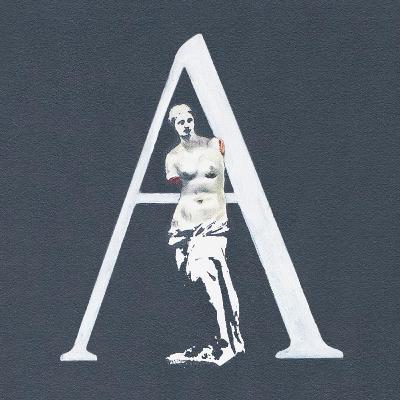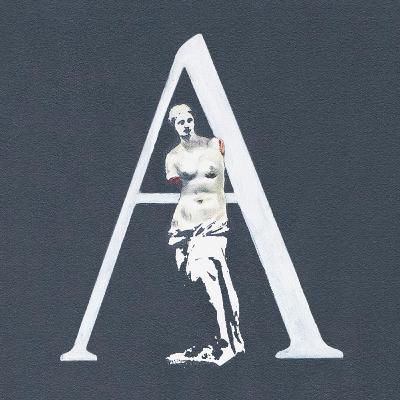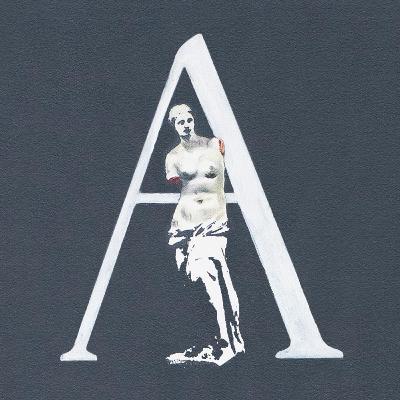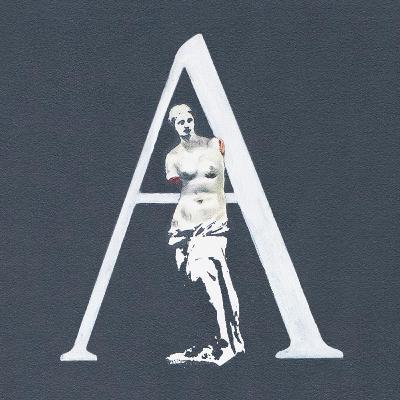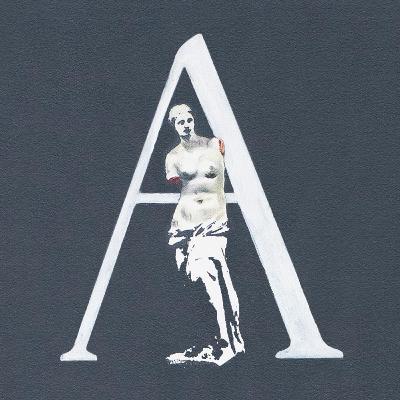Discover Capital A: Unauthorized Opinions on Money, Art & Everything
Capital A: Unauthorized Opinions on Money, Art & Everything

Capital A: Unauthorized Opinions on Money, Art & Everything
Author: Phil Rabovsky
Subscribed: 7Played: 52Subscribe
Share
© Phil Rabovsky
Description
Phil Rabovsky explores "the possibility of there being a future" in this podcast, which considers the world of today and the world yet to come through the lens of art and money.
16 Episodes
Reverse
How do you make a living as an artist when the big platforms price your work at zero? How do you get your big break when all the institutions that used to discover young artists have been decimated by the tech monopolies? In this episode, I talk to essayist and critic William Deresiewicz about his book, The Death of the Artist: How Creators Are Struggling to Survive in the Age of Billionaires and Big Tech.
BILL'S WEBSITE
billderesiewicz.com
WORKS CITED
-Deresiewicz, William. The Death of the Artist: How Creators Are Struggling to Survive in the Age of Billionaires and Big Tech. New York, New York: Henry Holt and Co., 2020.
-Khan, Lina M. “Amazon’s Antitrust Paradox.” The Yale Law Journal 126, no. 3 (January 2017). https://www.yalelawjournal.org/note/amazons-antitrust-paradox.
-Davis, Ben. 9.5 Theses on Art and Class. Chicago, Illinois: Haymarket Books, 2013.
-Graeber, David. Bullshit Jobs: A Theory. 1st edition. New York: Simon & Schuster, 2018.
-Deresiewicz, William. “Stages of Grief: What the Pandemic Has Done to the Arts.” Harper’s Magazine, May 12, 2021. https://harpers.org/archive/2021/06/stages-of-grief-what-the-pandemic-has-done-to-the-arts/.
-Lanier, Jaron. “Opinion | Jaron Lanier Fixes the Internet.” The New York Times, September 23, 2019, sec. Opinion. https://www.nytimes.com/interactive/2019/09/23/opinion/data-privacy-jaron-lanier.html.
MUSIC
-Theme music and consultation: Georgina Rossi, www.georginarossi.com
-Interlude: Alban Berg, 4 Stücke for clarinet and piano, Op.5; Carol McGonnell, clarinet; Steven Beck, piano
SPONSOR
Capital A is sponsored by Shoestring Press in Brooklyn: www.shoestringpressny.com
In this conversation with Paris-based painter Thomas Agrinier, we discuss his dynamic figurative paintings—which mix a powerful classicism with contemporary textural and cartoon-like effects—as well as the experience of splitting your time between the computer and your body, and the need for optimism in life and politics.
WHERE TO SEE THOMAS’ WORK
-Instagram: @thomas.agrinier
-Website: www.thomasagrinier.com
MUSIC
-Theme music and consultation: Georgina Rossi, www.georginarossi.com
-Interlude: Ludwig van Beethoven, Symphony No. 6 “Pastoral”: IV. Allegro, II. Andante molto mosso
SPONSOR
Capital A is sponsored by Shoestring Press in Brooklyn: www.shoestringpressny.com
On a recent walk to the Museo de Bellas Artes in protest-ravaged Santiago de Chile, I try to respond to all the work I see through the lens of this question: who does art speak to?
WORKS CITED
-Berger, John. “Revolutionary Undoing: On Max Raphael’s The Demands of Art.” In Landscapes: John Berger on Art, edited by Tom Overton, Reprint edition. London ; New York: Verso, 2018.
-Lescaze, Zoë. “An Artist Who Disavows the Possibility of Individual Agency.” The New York Times, November 12, 2021, sec. T Magazine. https://www.nytimes.com/2021/11/12/t-magazine/agnieszka-kurant-art.html.
MUSIC
-Theme music and consultation: Georgina Rossi, www.georginarossi.com
-Interlude: W.A. Mozart, Commendatore Scene from Don Giovanni
SPONSOR
Capital A is sponsored by Shoestring Press in Brooklyn: www.shoestringpressny.com
Can art really create political change? What are the conditions that make this possible if and when it happens? What are the social ingredients that make for good art scenes? ...and what the hell was up with the DNC last year? In a sobering interview, Ben Davis, National Art Critic for ArtNet News and self-avowed Marxist, reminds us to be realistic about art's ability to change a world it is only one small part of—but also to rid ourselves of the expectation that in order to be good, art must change the world.
WHERE TO READ BEN'S WORK
-https://news.artnet.com/about/ben-davis-93
-Davis, Ben. 9.5 Theses on Art and Class. Chicago, Illinois: Haymarket Books, 2013.
WORKS CITED
-Mayer, Jane. Dark Money: The Hidden History of the Billionaires Behind the Rise of the Radical Right. Reprint edition. Anchor, 2017.
-Thompson, Nato. Seeing Power: Art and Activism in the Twenty-First Century. Brooklyn, NY: Melville House, 2014.
-Piketty, Thomas. Capital and Ideology. Translated by Arthur Goldhammer. Cambridge, Massachusetts: Belknap Press: An Imprint of Harvard University Press, 2020.
-Harney, Stefano, and Fred Moten. The Undercommons: Fugitive Planning & Black Study. 1st edition. Wivenhoe: Autonomedia, 2013.
-English, Darby. Art Historian Darby English on Why the New Black Renaissance Might Actually Represent a Step Backwards. Interview by Folasade Ologundudu, February 21, 2021. https://news.artnet.com/art-world/darby-english-1947080.
-Smucker, Jonathan. Hegemony How-To: A Roadmap for Radicals. AK Press, 2017.
-Davis, Ben. “Alice Neel’s Communism Is Essential to Her Art. You Can See It in the ‘Battlefield’ of Her Paintings, and Her Cruel Portrait of Her Son.” Artnet News, April 15, 2021. https://news.artnet.com/opinion/alice-neel-was-a-commie-a-battlefield-of-humanism-1958503.
-Althusser, Louis. For Marx. Translated by Ben Brewster. London ; New York: Verso, 2006.
MUSIC
-Theme music and consultation: Georgina Rossi, www.georginarossi.com
-Interlude: Béla Bartók, String Quartet No. 1 in A Minor
SPONSOR
Capital A is sponsored by Shoestring Press: www.shoestringpressny.com
They receive about as much training as olympic athletes, and yet very few people have a sense of what life looks like for classical musicians today. This interview with Chilean-American violist Georgina Rossi covers a lot of ground: the nuts and bolts of a career in classical music, how society defines and compensates artistic labor, and simple things we as listeners can do to support the musicians that we love. Interwoven throughout the interview are excerpts from Georgina’s new album Mobili: Music for Viola and Piano from Chile. Enjoy!
WORKS CITED
Stone, Russell Dean. “‘He’s Got A Point, It’s Just That His Point Sucks’ – Artists React to Spotify CEO Saying They Need to Work Harder.” Vice, August 7, 2020. https://www.vice.com/en/article/5dzje3/daniel-ek-spotify-artists-pay-interview.
Wark, McKenzie. Capital Is Dead: Is This Something Worse? Verso, 2019.
MUSIC
Interlude 1: Rafael Díaz, Al fondo de mi distancia se asoma tu casa (https://www.youtube.com/channel/UCrWhxGd6TZNb-u1n7Yqjwmw)
Interlude 2: Carlos Botto, Fantasia
Interlude 3: Juan Orrego-Salas, Mobili
Interlude 4: David Cortes, Tololo (http://davidcortes.cl)
Interlude 5: Rafael Díaz, ¿Habrá alguien que en sus manos sostenga este caer?
All music from the album: Mobili: Music for Viola and Piano from Chile: https://www.newfocusrecordings.com/catalogue/georgina-isabel-rossi-mobili-music-for-viola-and-piano-from-chile/
Viola: Georgina Rossi (www.georginarossi.com)
Piano: Silvie Cheng (www.silviecheng.com)
Released by: New Focus Recordings (https://www.newfocusrecordings.com)
Recorded at: Oktaven audiO (http://www.oktavenaudio.com/)
WHERE TO HIRE CLASSICAL MUSICIANS
Hire Juilliard Performers (www.juilliard.edu/stage-beyond/hire-juilliard-performers)
WHERE TO STREAM MUSIC
Bandcamp (bandcamp.com)
A SELECTION OF MUSICIAN-LED COLLECTIVES & ENSEMBLES TO SUPPORT
ACRONYM (www.acronymensemble.com/albums)
American Composers Orchestra (americancomposers.org)
American Stories Podcast (podcasts.apple.com/us/podcast/american-stories/id1512423110)
Argus Quartet (fundraising.fracturedatlas.org/argus-quartet)
Cheng2Duo (https://www.cheng2duo.com)
Digital Camerata (digitalcamerata.org/#support)
Kettle Corn New Music (kettlecornnewmusic.com/support)
Music for Food (musicforfood.net)
New Focus Recordings (www.newfocusrecordings.com)
Oktaven AudiO (http://www.oktavenaudio.com/)
Project Music Heals Us (www.pmhu.org)
Shouthouse (www.shouthousemusic.com)
Switch Ensemble (www.switchensemble.com)
Tak Ensemble (www.takensemble.com)
Tenet Vocal Artists (https://tenet.nyc/support)
The Crossing (www.crossingchoir.org)
The Westerlies (www.westerliesmusic.com)
Ulysses Quartet (www.ulyssesquartet.com)
Versoi Ensemble (www.versoiensemble.org)
Not included in this list are dozens of regional orchestras and summer music festivals across the country. Look up your local symphony, chamber orchestra, or music festival, and make a point of buying tickets and attending concerts!
As artists, we often despair about the efficacy of our work and its ability to advocate for change. Part of this has to do with the fact that the art gallery/museum circuit can feel like a bubble, where everyone largely agrees on the issues and advocacy of any kind feels like preaching to the choir. But the more I think about this problem, the more I've come to feel that this agreement is an illusion. This episode argues that taken as a whole, the audiences of art galleries and museums are some of the most powerful people in our society—precisely the people that need to be convinced that things need to change.
WORKS CITED
-Foster, Hal. What Comes After Farce. Illustrated Edition. London ; New York: Verso, 2020.
-Piketty, Thomas. Capital and Ideology. Translated by Arthur Goldhammer. Cambridge, Massachusetts: Belknap Press: An Imprint of Harvard University Press, 2020.
-Hodges, Betsy. “Opinion | As Mayor of Minneapolis, I Saw How White Liberals Block Change.” The New York Times, July 9, 2020, sec. Opinion. https://www.nytimes.com/2020/07/09/opinion/minneapolis-hodges-racism.html.
-Liscia, Valentina Di. “Brooklyn Museum Employees Accuse Administration of Staff Mistreatment.” Hyperallergic (blog), September 17, 2020. https://hyperallergic.com/588184/brooklyn-museum-staff-open-letter/.
-Badiou, Alain. “Concerning the Dominant Ideologies of the Contemporary World.” UCLA Program in Experimental Critical Theory, December 1, 2015. https://www.youtube.com/watch?v=74u2_Fg-UHo.
-Östlund, Ruben. The Square. Comedy, Drama. Plattform Produktion, Film i Väst, Essential Filmproduktion GmbH, 2017.
MUSIC
-Theme music and consultation: Georgina Rossi, www.georginarossi.com
-Interlude: Johann Sebastian Bach, Harpsichord Concerto No. 5 in F Minor - II. Largo
As we become more aware of the existential threat of climate change, it can feel like the economy is a runaway engine driving us toward extinction. We know that something is wrong, but we don’t know how to stop the momentum of this extractive economy that seems to have a will of its own. Episode 10 explores two alternatives to this vision of extinction—Post-scarcity and Degrowth—two optimistic attempts to unthink the economic orthodoxy that threatens our world. This is part 3 of a three-part episode exploring our society's tacit belief in the "the end of history," and what we can do to shed this politically-charged and dangerous illusion.
SOURCES
-Mason, Paul. Postcapitalism: A Guide to Our Future. New York: Farrar, Straus and Giroux, 2016.
-Rifkin, Jeremy. Zero Marginal Cost Society. Reprint edition. New York, NY: Griffin, 2015.
-Thunberg, Greta. Presented at the Climate Action Summit 2019, UN Headquarters NY, September 23, 2019.
-Cassidy, John. “Can We Have Prosperity Without Growth?” The New Yorker, no. February 10, 2020. Accessed August 25, 2020. https://www.newyorker.com/magazine/2020/02/10/can-we-have-prosperity-without-growth.
-Platonov, Andrei. “On the First Tragedy of Socialism.” New Left Review, no. 69 (1934). https://newleftreview.org/issues/II69/articles/andrei-platonov-on-the-first-socialist-tragedy.
-Wark, McKenzie. Molecular Red: Theory for the Anthropocene. London: Verso, 2015.
-Kallis, Giorgos. Degrowth. Agenda Publishing, 2018.
-Frase, Peter. Four Futures: Life After Capitalism. London: Verso, 2016.
MUSIC
-Theme music and consultation: Georgina Rossi, www.georginarossi.com
-Interlude: Carl Maria von Weber, Concertino for Clarinet, performed by clarinetist Luis Rossi (www.luisrossi.com) from the upcoming album: Weber, Strauss, Atehortúa; available now on all streaming platforms: https://open.spotify.com/album/6BqELmqO09calWtKzO73cb?si=RBDAbg4YSbu9FzYSZb7SOg
After the horrific killing of George Floyd by the police that were meant to protect and to serve him, mass demonstrations have pushed the conversation around police brutality to what is hopefully a new turning point in the United States. But the conversation around making reparations to black Americans for centuries of unpaid labor, stolen property, loss of life and emotional trauma remains as elusive as ever. In this episode, I step out of my depth to offer a personal opinion as a citizen and as a human being: if #BlackLivesMatter, then we need to demand reparations for black Americans.
WORKS CITED
-Glaunec, Jean-Pierre Le. The Cry of Vertières: Liberation, Memory, and the Beginning of Haiti. Translated by Jonathan Kaplansky. McGill-Queen’s University Press, 2020.
-Newsinger, John. “Liberty and Equality in Haiti.” Socialist Review. http://socialistreview.org.uk/303/liberty-and-equality-haiti.
-Piketty, Thomas. Capital and Ideology. Translated by Arthur Goldhammer. Cambridge, Massachusetts: Belknap Press: An Imprint of Harvard University Press, 2020.
-Coates, Ta-Nehisi. “The Case for Reparations.” The Atlantic. https://www.theatlantic.com/magazine/archive/2014/06/the-case-for-reparations/361631/
-Cohen, Patricia. “What Reparations for Slavery Might Look Like in 2019.” The New York Times, May 23, 2019, sec. Business. https://www.nytimes.com/2019/05/23/business/economy/reparations-slavery.html
-Blow, Charles M. “Opinion | Allies, Don’t Fail Us Again.” The New York Times, June 7, 2020, sec. Opinion. https://www.nytimes.com/2020/06/07/opinion/white-privilege-civil-rights.html
UPDATES
-June 30, 2020. A few weeks after this episode came out, The New York Times Magazine published an incredible article, What is Owed, by Nikole Hannah-Jones, covering these themes and more: https://www.nytimes.com/interactive/2020/06/24/magazine/reparations-slavery.html
MUSIC
-Theme music and consultation: Georgina Rossi, www.georginarossi.com
-Interlude: William Grant Still, Here’s One, performed by violist Georgina Rossi (www.georginarossi.com) and pianist Silvie Cheng (www.silviecheng.com)
Why is it that, despite the fact that technology has made it easier and cheaper to make and distribute your own films than ever before, being an independent filmmaker has become no easier than it ever was? In this episode, I talk to my friend, the filmmaker Charles Davis, about the life and times of today's independent filmmakers.
ABOUT CHARLES
Charles Davis is an independent filmmaker and head of Chunkle Freaky's Movies, an independent film company that makes low budget weirdo films for your viewing pleasure. Check out his site at www.chunklefreaky.com and catch his movies on Amazon and Vimeo.
-Athas: https://www.amazon.com/Athas-Leslie-Dame/dp/B07YXCKRZL
-Portal Man: https://www.amazon.com/gp/product/B07JK9GW19
-Eddie Glum: https://vimeo.com/ondemand/eddieglum
THINGS CHARLES THINKS YOU SHOULD SEE
-vimeo.com
-Chain Film Festival: www.chainfilmfestival.com
-Newark International Film Festival: http://newarkiff.com/
-New Filmmakers New York: www.newfilmmakers.com
-Corey Nikolaus - Fish Eye - https://www.youtube.com/watch?v=7Q7InAGvSFg
-Bob Rose - Timecrowave - https://www.youtube.com/watch?v=AX2roqxRRqc
-Kate Lavin - The Eye in the Clock - https://www.youtube.com/watch?v=z7zGiN1bzz8
MUSIC
-Theme music and consultation: Georgina Rossi, www.georginarossi.com
-Interlude: Aleksandr Borodin, In the Steppes of Central Asia
It is clear that Covid-19 is an event of historic proportions, but what does that really mean? What do we mean when we say that an event "shaped the course of history," and how much history is there really left to shape? Episode 7 dives into one of my favorite books of all time, Less Than Nothing, Slavoj Žižek's gutsy attempt to rehabilitate Hegel for the contemporary age. Recorded on lockdown during the coronavirus outbreak in New York, this is part 2 of a three-part episode exploring our society's tacit belief in the "the end of history," and what we can do to shed this politically-charged and dangerous illusion.
WORKS CITED
-Žižek, Slavoj. Less Than Nothing: Hegel and the Shadow of Dialectical Materialism. 1 edition. Verso, 2012.
-Piketty, Thomas. Capital and Ideology. Translated by Arthur Goldhammer. Cambridge, Massachusetts: Belknap Press: An Imprint of Harvard University Press, 2020.
MUSIC
-Theme music and consultation: Georgina Rossi, www.georginarossi.com
-Interlude: Johannes Brahms, Symphony No. 3 - III. Poco Allegretto
With climate change, inequality, and Covid-19 raging just outside our windows, it can sometimes feel like we live in a world without a future. How did we get here? And how do we get back out? How do we reinstate the future if we no longer believe in progress? Recorded on lockdown during the coronavirus outbreak in New York, this is part 1 of a three-part episode exploring our society's tacit belief in the "the end of history," and what we can do to shed this politically-charged and dangerous illusion.
WORKS CITED
-Lyotard, Jean-Francois. The Postmodern Condition: A Report on Knowledge. Translated by Geoff Bennington and Brian Massumi. 1st edition. Minneapolis: University Of Minnesota Press, 1984.
-Piketty, Thomas. Capital and Ideology. Translated by Arthur Goldhammer. Cambridge, Massachusetts: Belknap Press: An Imprint of Harvard University Press, 2020.
-Žižek, Slavoj. “Beyond Mandela Without Becoming Mugabe: Some Postapocalyptic Considerations.” Deutsches Schauspielhaus, Hamburg, Germany, November 19, 2015. From YouTube user Ippolit Belinski, https://www.youtube.com/watch?v=a5DiZBb8f6A
-Danto, Arthur C. After the End of Art. New Jersey: Princeton University Press, 1998.
-Fukuyama, Francis. “The End of History?” The National Interest, no. 16 (1989): 3–18.
-Jameson, Fredric. Postmodernism, or, The Cultural Logic of Late Capitalism. Durham, NC: Duke University Press, 1992.
-Bradbury, Ray. Dandelion Wine. Bantam Books, 1976.
-Moore, Michael. “Michael Moore’s Easter Mass.” Rumble with Michael Moore. Accessed April 11, 2020. https://anchor.fm/rumble-with-michael-moore
MUSIC
-Theme music and consultation: Georgina Rossi, www.georginarossi.com
-Interlude: Franz Schubert, Erlkönig, based on the poem by Johann Wolfgang von Goethe
It’s common knowledge that today, there is no unifying theme or essence to contemporary art. Having finally broken all of its own rules, the story goes that art is now free to be anything it wants to be. But while this idea is generally accepted, is it really true? Episode 5 argues that there is a common element to contemporary art today—a certain mode of production or attitude which it borrows from the worldview of marketing and branding.
WORKS CITED
-Danto, Arthur C. After the End of Art. New Jersey: Princeton University Press, 1998.
-Hyde, Lewis. The Gift: Creativity and the Artist in the Modern World. 25th Anniversary edition. New York: Vintage, 2007.
MUSIC
-Theme music and musical consultation: Georgina Rossi, www.georginarossi.com
-Interlude: Igor Stravinsky, Tango
Why is it that most of the galleries out there are chasing the same small group of elite collectors? In this interview with Maddie Boucher, the former head of Artsy's Art Genome Project, Episode 4 asks why life is tough for small galleries—and what we the 99% can do to start thinking of ourselves as people who can collect art and support the artists that we love.
Learn more about Maddie and her work at: madeleineboucher.com
MUSIC
-Theme music and consultation: Georgina Rossi, www.georginarossi.com
-Interlude: Joseph Haydn, String Quartet No. 53 in D major ("The Lark") - II. Adagio, Cantabile
How does the wealth gap impact artists' ability to relate to one another? Episode 2, Part I explores how concentrations of capital at the top of the market affect inter-relationships between working artists.
WORKS CITED
-Levin, Yuval. The Great Debate: Edmund Burke, Thomas Paine, and the Birth of Right and Left. New York: Basic Books, 2014.
-Horkheimer, Max, and Theodor W. Adorno. Dialectic of Enlightenment. Edited by Gunzelin Schmid Noerr. Translated by Edmund Jephcott. 1 edition. Stanford, Calif: Stanford University Press, 2007.
MUSIC
-Theme music and musical consultation: Georgina Rossi, www.georginarossi.com
-Interlude: Felix Mendelssohn, String Octent in E-flat Major - III. Scherzo: Allegro leggierissimo
Why does being an artist increasingly feel like sending your blood, sweat and tears into the void? Episode 2, Part I explores how concentrations of capital at the top of the market make life hard for working artists on a macro, systemic level.
WORKS CITED
-Marx, Karl. Capital: A Critique of Political Economy. Edited by Frederick Engels. Translated by Samuel Moore and Edward Aveling. Revised edition. Modern Library, 1906, p. 686.
-Debord, Guy. The Society of the Spectacle. Translated by Donald Nicholson-Smith. Revised edition. New York: Zone Books, 1995, §4, §29.
THOUGHT CONTRIBUTORS
-Georgina Rossi, Violist, www.georginarossi.com
-Lane Sell, Master Printmaker, www.shoestringpressny.com
-Sam Ashworth, Novelist and Journalist, samuelashworth.com
-Anonymous, Assistant Director on Broadway
MUSIC
-Theme music and musical consultation: Georgina Rossi, www.georginarossi.com
-Interlude: Ludwig Beethoven, String Quartet No. 16 in F - IV. Grave, Adagio, Allegro
What is the difference between a space and a venue? Episode 1 explores what space is, and why it is crucial to working artists.
WORKS CITED
-Fusco, Coco. SVA Art Practice Lunchtime Lecture Series. New York, n.d. https://vimeo.com/292362674.
-Bishop, Claire. “Palace in Plunderland.” Artforum, Slant, September 2018.
-Richter, Hans. Dada: Art and Anti-Art. Reprint edition. New York: Thames & Hudson, 1997.
-Thornton, Sarah. Seven Days in the Art World. W. W. Norton & Company, 2008.
-Bourdieu, Pierre. Distinction: A Social Critique of the Judgement of Taste. 1 edition. London: Routledge, 1986.
-Thompson, Nato. Seeing Power: Art and Activism in the Twenty-First Century. Brooklyn, NY: Melville House, 2014.
MUSIC
-Theme music and musical consultation: Georgina Rossi, www.georginarossi.com
-Interlude: Anton Bruckner, Symphony in D. Minor, "Die Nullte" - III. Scherzo



